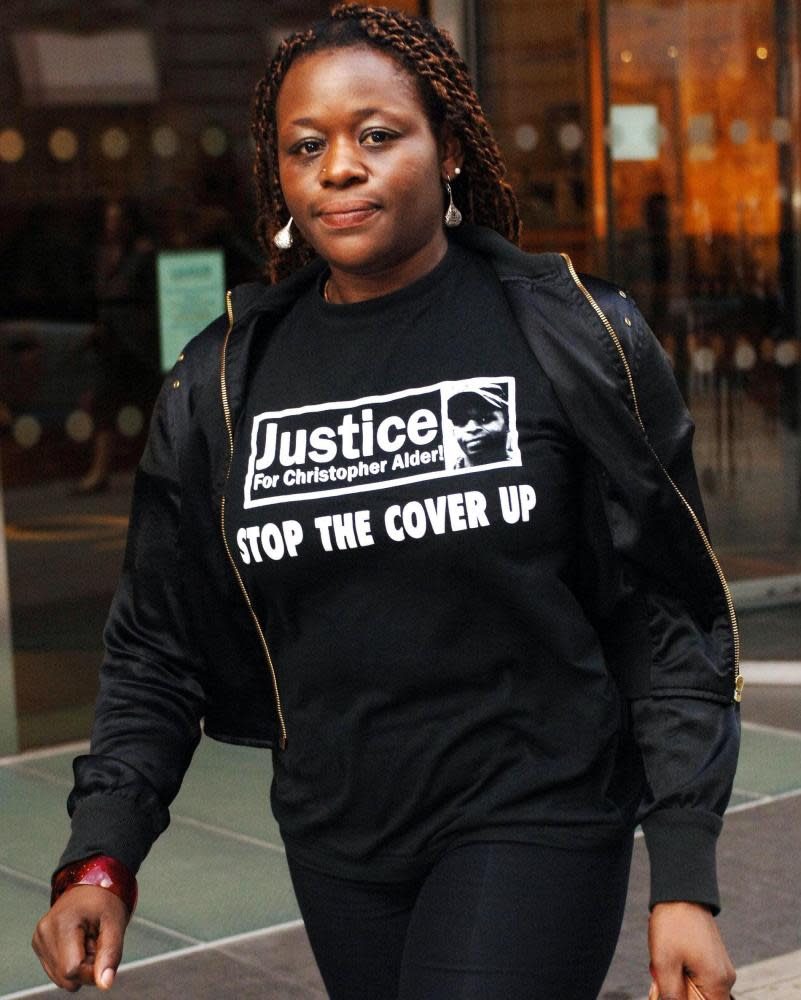Play about Christopher Alder's death to be turned into film
A play about a notorious case of a black man dying in police custody is being made into a film, with its creator hoping it can ignite a conversation about systemic racism in the UK and dismiss the myth of a post-racial Britain.
In 2018, playwright Ryan Calais Cameron wrote Typical, a one-man play which is based on the death of Christopher Alder, a Falklands veteran who died while handcuffed on the floor of a Hull police station in 1998. The play had a successful run at Edinburgh in 2019 and played at the Soho Theatre.
Calais Cameron said he was compelled to write the play after hearing about the Alder case as a child and his own history of being stopped by police in London. The playwright moved to Martinique with his family in 1999 in the wake of the Alder case and after he was stopped by the police as an 11-year-old. “My mum said, ‘I’m not going to let you die here’ and moved us,” said Calais Cameron, who would return to London after a year.
After his family returned to London the playwright went to see Christopher’s sister, Janet Alder, speak in 2012 and realised he knew the case from his childhood. Six years later – after he was stopped by police while driving with his wife and three young children as passengers – Calais Cameron wrote the first draft of Typical in one night.
Richard Blackwood starred in the stage production and reprises the role for the film, which sees Alder portrayed as an everyman who is proudly black, British and patriotic after serving in the Falklands conflict. “Our central character doesn’t go to a protest or anything like that, he’s just going on a night out,” Calais Cameron said. “One of the things I’ve tried to get across in this piece is the negotiations that black people need to make in order to do things that seem simple to others.”
In the wake of the Black Lives Matter movement, Alder’s case and other deaths in police custody in the UK, such as Joy Gardner and Sean Riggs, have come back to public attention. Since 1990, there have been more than 1,700 deaths in police custody or after contact with the police. Although black people make up only 3% of the UK’s population, black people accounted for 8% of the deaths in police custody, according to figures compiled by the BBC.

The Alder case became notorious not only because of the fact he died in police custody, but because of the police and authorities actions after his death. A video from the Hull police station, which is featured in Typical, showed officers joking as the former paratrooper died, with monkey noises being clearly audible. In 2002, five police officers were put on trial for manslaughter and misconduct in public office, but were cleared of all charges.
A review by the Independent Police Complaints Commission in 2006 found four of the officers present were guilty of “unwitting racism” and the “most serious neglect”. That conclusion was disputed by the Police Federation, the police trade union. In 2011, it was revealed that Christopher’s family had buried the wrong person when Alder’s body was discovered in a hospital mortuary. Grace Kamara, a Hull pensioner, was placed in his grave by mistake.

In 2018, it was revealed that after the 2000 inquest police launched an unauthorised surveillance operation when they became concerned about the presence of “four large black men” at the proceedings. Two officers faced gross misconduct charges over the operation, which involved Humberside police officers following Alder’s sister Janet and her barrister, Leslie Thomas, in an attempt to listen to their private conversations.
The government eventually apologised to Alder’s family for a series of human rights violations, after Janet Alder took her case to Strasbourg to argue that substantive aspects of article 3 of the European convention on human rights had been violated.
Calais Cameron said the film was partly inspired by Spike Lee’s theatrical film Pass Over, which was based on Antoinette Nwandu’s play that was a response to the shooting of Trayvon Martin, and Rodney King, Lee’s 2017 Netflix film about the police beating that triggered the 1992 LA riots, starring Roger Guenveur Smith.
The film was recorded at Soho Theatre, where the play had a sold-out run last year, with social distancing measures meaning only six people could be in the space at any time and Calais Cameron giving input via a Zoom video link.
The film’s director, Anastasia Osei-Kuffour, said reviving Typical is “part of our protest and fight against the wrong going on in the world”, and she hoped the film would reach a wider audience in the UK. “There needs to be greater awareness of our own incidents of racism, injustice and police misconduct, problems that we need to tackle here in the UK,” she said.
“We have this idea that we do live in a post-racial Britain, but I come across racism near enough every single day,” added Calais Cameron. “So I wanted to put a light on that and go, this is the reality that so many black people face on a day-to-day basis.”

